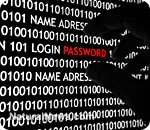Cyberattacks on critical U.S. infrastructure are a very real threat, claims Defense Secretary
09/15/2015 / By cyberwar

In a world where threats to national security are increasingly coming from online sources, the United States must do more to beef up its cyber defenses or suffer consequences similar to, or worse than, those suffered on 9/11.
That dire warning came from Secretary of Defense Leon Panetta, who told a group of business leaders in New York City recently that the 2001 attacks only occurred after U.S. intelligence failed to see the so-called writing on the wall ahead of that devastating terrorist assault.
His not-so-subliminal message?
The government needs better tools to see those threats coming, as in more powerful surveillance capabilities, and Panetta was in town that night to sell that notion to the business community and ask for its help in securing those tools on behalf of the Obama administration.
As have all administrations in recent history, Panetta was employing the tried-and-true tactic of pushing for extra-constitutional powers under the guise of “national security” – all in the name of protecting the public, of course.
Laying out the dangers
Panetta, speaking aboard a decommissioned aircraft carrier, laid out this scenario: Cyber attacks are increasing exponentially against the U.S., and because they are the nation is currently facing a “pre-9/11 moment.” In addition, he said, the government is pointedly concerned about an escalation of attacks that will be directed at critical national infrastructure.
In a rare moment of candidness, Panetta “reminded the Business Executives for National Security about recent distributed denial of service attacks that hit a number of large U.S. financial institutions with unprecedented speed, disrupting services to customers,” CNN reported.
In short, Panetta was saying the stakes are so high it would be the epitome of irresponsibility for the business group to refuse to help. Government appointees are seldom so candid without an ulterior motive.
We know of specific incidences where intruders have gained access…
In a bid to whip up further hysteria, Panetta went on to say that a cyber virus called Shamoon that infected computers of major energy firms in Saudi Arabia and Qatar this past summer affected more than 30,000 computers in all, rendering them useless. The attack, he said, was directed against the Saudi state oil company ARAMCO, with a similar DoS attack launched against Ras Gas of Qatar, which the Pentagon chief described as the most devastating to ever hit the private sector.
Most worrisome, according to Panetta and other officials, are cyber attacks that could be directed towards the nation’s critical, computerized infrastructure, such as its electrical grid, transportation systems, water plants, financial and banking sectors and other vital pieces.
“We know of specific instances where intruders have successfully gained access to these control systems,” Panetta said. “We also know they are seeking to create advanced tools to attack those systems and cause panic, destruction and even loss of life.”
That said, the Department of Defense is “aggressively … putting in place measures to stop cyber attacks dead in their tracks,” Panetta said, who went on to outline both offensive and defense responses.
Specifically, he talked about efforts to stop malicious computer code – viruses – before they can infect systems, as well as investments in techniques aimed at tracking down who is responsible.
Clearly; however, defense measures alone aren’t going to be enough, Panetta said.
At this point the secretary went in for the kill.
If you don’t succeed legislatively, there’s always an executive order
“If we detect an imminent threat of attack that will cause significant physical destruction or kill American citizens, we need to have the option to take action to defend the nation when directed by the president,” Panetta said.
“We must share information between the government and the private sector about threats to cyberspace,” Panetta said, without providing further details.
Of course not.
He did, as an addendum, say everything would be done to protect civil liberties and privacy, but this is just a platitude, for it’s no secret the Obama administration has, for months, been pressing for these new cyber security powers. In fact, the administration is so hell bent on obtaining them that Homeland Security Secretary Janet Napolitano said last month that an executive order on the issue was forthcoming.
Maybe all Panetta was really trying to do was to give the business group a heads-up.
Sources:
Tagged Under:




















